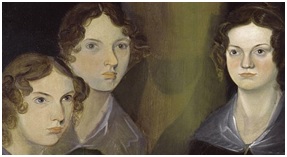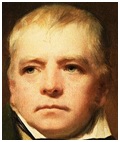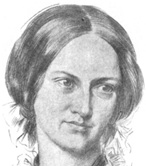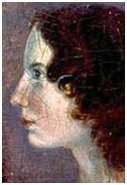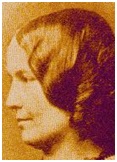|
 |
|
 |
|
|
||
The Brontë sisters - Creativity and Writing
The Brontë sisters:
Charlotte (1816-55) Emily ( 1818- 48) Anne (1820-49)
English writers (pictured above in a 1834 painting by their brother, Branwell, who was in it but painted himself out - from left to right: Anne, Emily and Charlotte) . Lived in Haworth in the Yorkshire moors that inspired their books.
Their most famous books are... Jane Eyre (by Charlotte), Wuthering Heights (Emily) Agnes Grey (Anne).
Why were they so creative?
1. Inspiration and imagination They were inspired by:
2. Ambition and purpose Despite the fact they all wrote anonymously with pseudonyms, they wanted their work to be appreciated. This was much more important to them than money. Charlotte:
But she never left Haworth, so that she could look after her ageing father (pictured right).
3. Passion and enthusiasm They all loved writing and creating beautiful and emotive literature. 4. Learning They learned from
The teacher taught them the importance of
5. Experience Their writing was based on
a) personal experience The horrible school Charlotte was sent to in 1824 became Lowood School in Jane Eyre. Heathcliff in Wuthering Heights may have been based on the sisters’ brother, Branwell. “Novelists should never allow themselves to weary of the study of real life”, Charlotte said.
b) social injustice They responded to:
“Conventionality is not morality. Self-righteousness is not religion”, Charlotte (pictured right in 1850) wrote in the preface to Jane Eyre. Jane (like Charlotte) fights for her
6. Revolutionaries They produced challenging literature that educated people about:
In Emily's (pictured right in her brother's portrait) Wuthering Heights, Catherine doesn’t marry her beloved Heathcliff, because he comes from a lower class. Seeing the story through Jane Eyre’s eyes (using ‘I’ in the text) was revolutionary.
7. Determination and self-belief They persevered with writing, despite bad reviews and poor sales. Only two copies of their book of poetry were sold! Jane Eyre and Wuthering Heights were criticized as coarse and immoral Charlotte was told by the Poet Laureate early in her career that: “literature cannot be the business of a woman’s life”. Like her sisters, she was determined to prove him wrong.
8. Religion Their father was a Church of England minister and so Christianity was very important to them (making criticisms of immorality particularly hurtful). They believed their talent was a gift from God and so should be developed as much as possible. Religion also gave them the principles and purpose to cope with life’s problems and seize its opportunities. 9. Customer satisfaction Charlotte's (pictured right in 1854) Jane Eyre was extremely popular because of the book’s passion and emotional honesty. People identified with Jane, because they saw in her their own thoughts and feelings.
Key quotes on relationships It is not violence that best overcomes hate (Charlotte, Jane Eyre). Life appears to be too short in nursing animosity, or registering wrongs (Charlotte, Jane Eyre).
Key quote on religion Conventionality is not morality. Self-righteousness is not religion (Charlotte in the preface to Jane Eyre).
Key quotes on happiness A ruffled mind makes a restless pillow (Charlotte, The Professor). There is always a “but” in this imperfect world (Anne, The Tenant of Wildfell Hall) .
Key quote on the past All true histories contain instruction (Anne, Agnes Grey). |
|
|
||
|
|
||
| Copyright © wisdomtowin.com 2025 All Rights Reserved | ||
|


